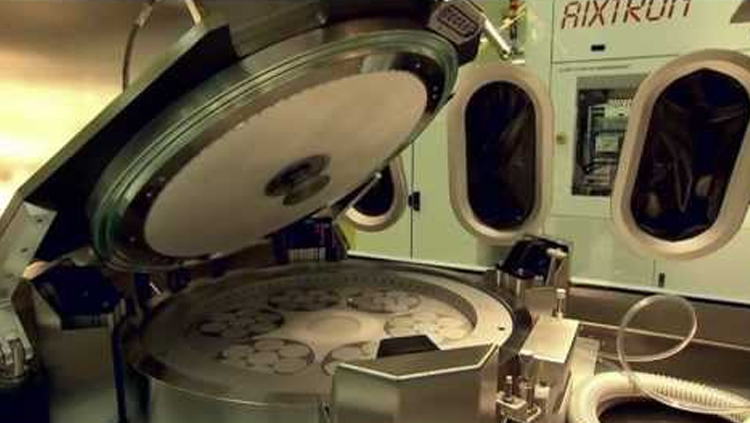ZSW breaks CIGS efficiency record

The Centre for Solar Energy and Hydrogen Research Baden-Wuerttemberg (ZSW) has set a new world record in thin-film photovoltaics. Scientists in Stuttgart achieved 21.7 percent efficiency with a solar cell made of copper indium gallium diselenide (CIGS).
ZSW succeeded in bringing the record back to the institute with this cell's performance. Swedish researchers achieved a new best mark in June, which has now been surpassed by 0.7 percentage points. The progress underway in the southwest of Germany is helping to make solar power more affordable.
This record-setting performance in Stuttgart extends the CIGS cell's lead over multicrystalline solar cells, which still dominate the market, to 1.3 percent. "Our advances once again confirm the tremendous technological potential of CIGS thin-film photovoltaics," says Michael Powalla, ZSW board member and head of the Photovoltaics division. "The lab data show that further efficiency improvements will be possible in the years ahead. This could drive down the cost of CIGS technology even more sharply."
The record-setting cell has an area of 0.5 cm², a standard size for such tests. It was manufactured in a laboratory coating plant by way of a co-evaporation process that is highly reproducible in the lab: The scientists made more than 40 cells with efficiency ratings topping the 21 percent. This would indicate that the method lends itself to industrial manufacturing and could be readily scaled up to mass production. The Fraunhofer Institute for Solar Energy Systems ISE confirmed the results.
"We are accustomed to the industry in Baden-Wuerttemberg setting records, but this world record is something special," says Baden-Wuerttemberg's Minister of Finance and Economics Nils Schmid. "The excellent research being done at ZSW is a key prerequisite for innovations like this. The roughly four million euros in basic funding flowing to the ZSW every year from the state is money well spent."
Solar cell efficiency is one of the most powerful drivers in reducing the cost of solar energy. The rating indicates how much of the sun's incident light is converted into electrical energy. "It will probably take some time for this efficiency increase to make its way into module manufacturing," explains Powalla, "but 17 to 19 percent is very much possible in the next few years." The CIGS modules currently available on the market are rated for around 15 percent efficiency. Modules' physical area is larger so they are less efficient than solar cells.
The latest results from Stuttgart improve the chances of CIGS thin-film technology gaining a much larger market share. This is good news for Manz AG. The ZSW licensed the technology to and developed it jointly with this industry partner. The Reutlingen-based company exclusively markets a turnkey manufacturing line for producing CIGS thin-film solar panels and now aims to move this efficiency boost out of the lab and into the factory. The idea is to make CIGS solar systems economical and affordable practically anywhere in the world.
Thin-film cells' coating is measured in micrometers, so they consume far less material and energy in the making than standard solar cells and are sure to have a major impact on cutting future production costs. This is why the Germany Federal Ministries for the Environment and for Economic Affairs and Energy as well as the state of Baden-Wuerttemberg provided funding for this technology. As the ZSW's record-setting efficiency rating yet again attests, the support for this research is paying dividends.


































